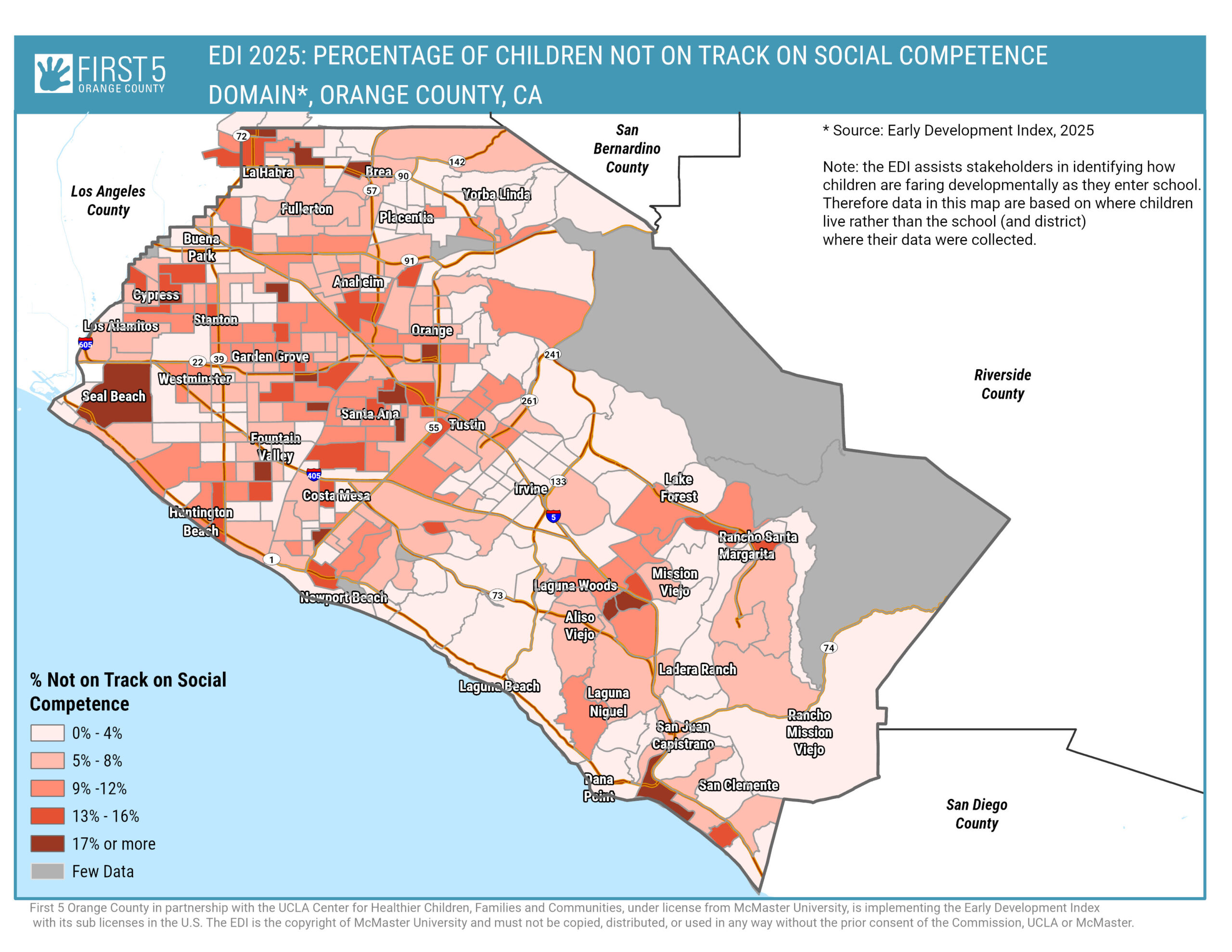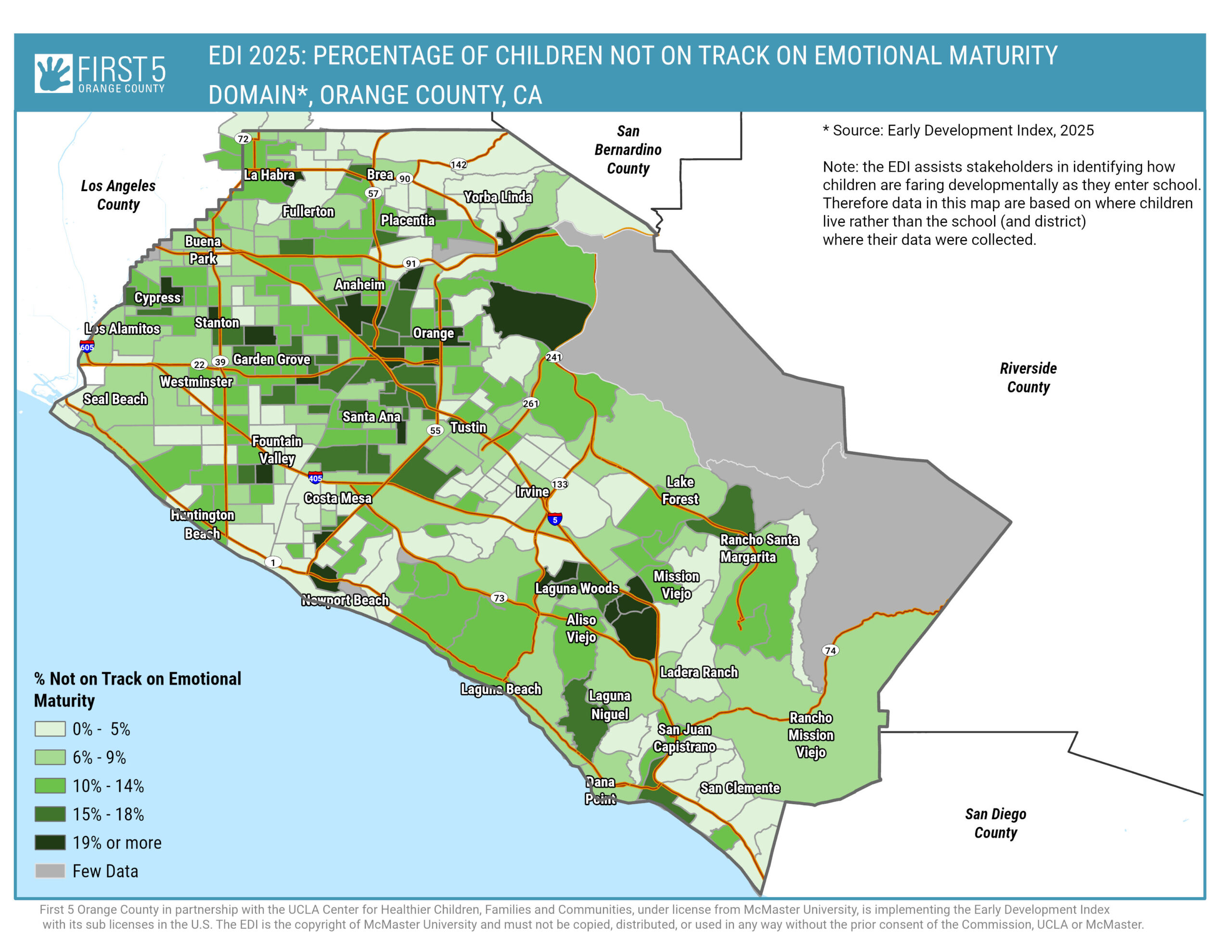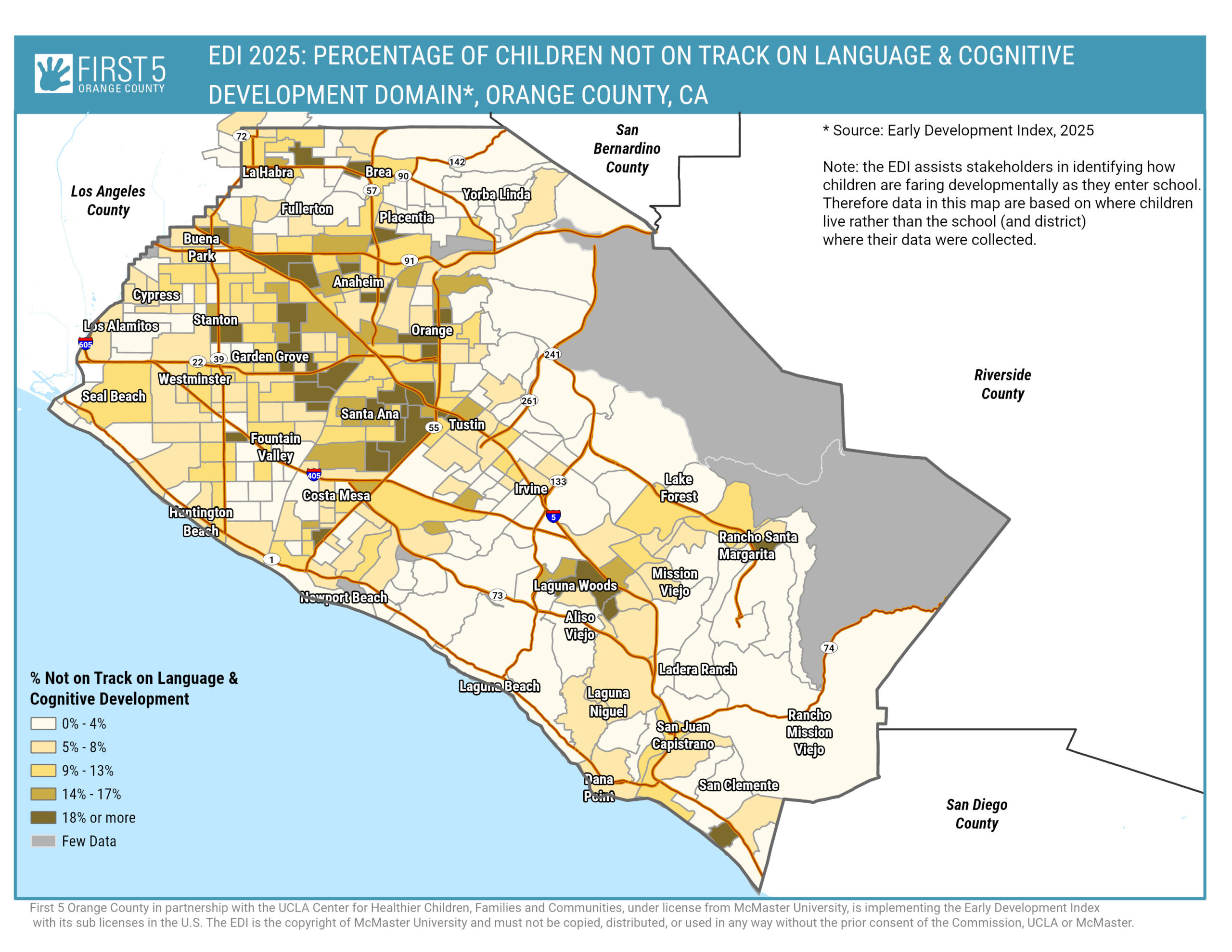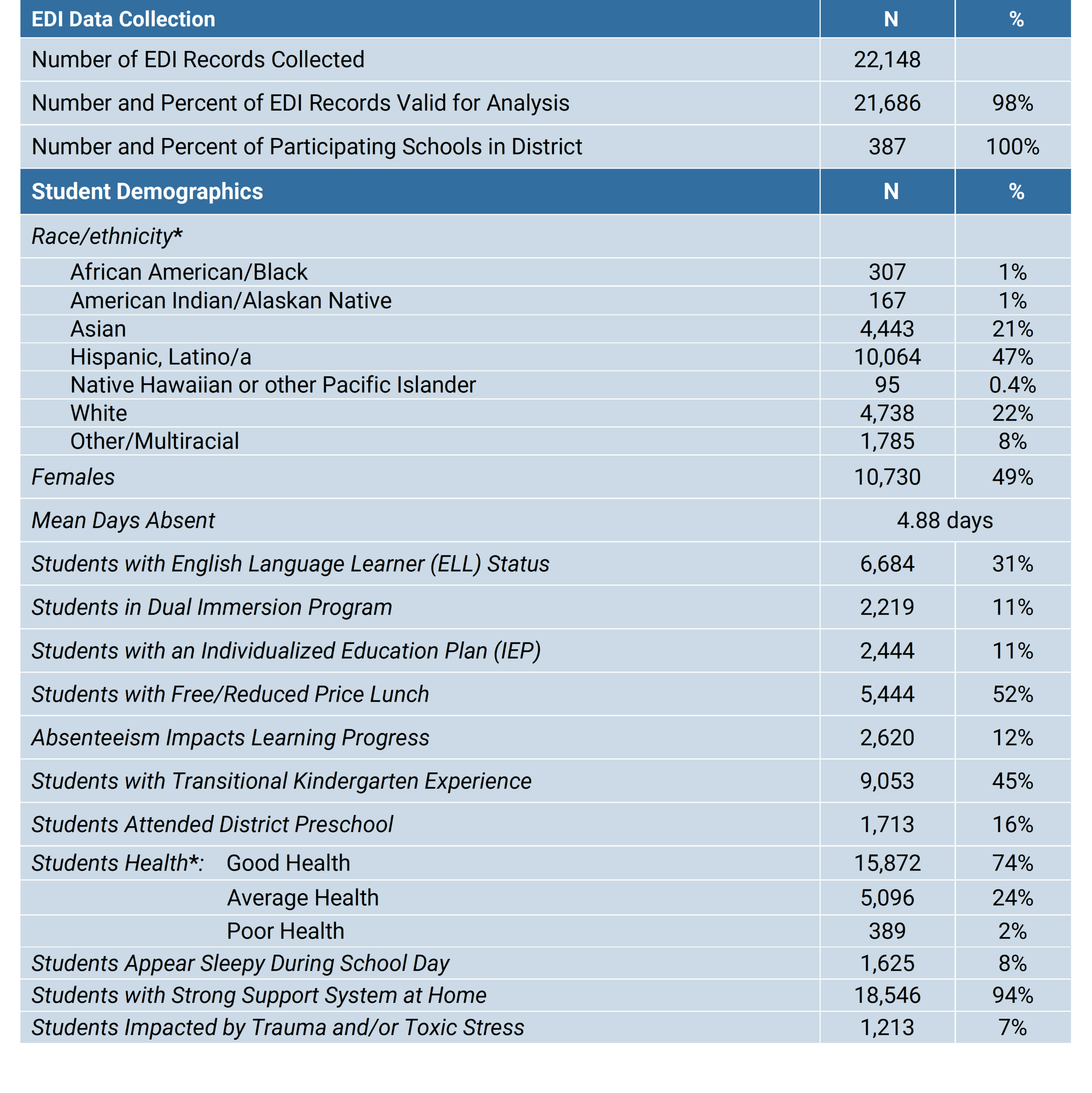Orange County’s 2025 Early Development Index (EDI)
Using data to create systems change in Orange County through policy change, targeted intervention, and will building.
Click here to view a presentation on the latest data.
Introduction
The EDI is an assessment filled out on all the children in kindergarten that was developed by the Offord Centre for Child Studies at McMaster University in Canada. First 5 Orange County, which invests in building an early childhood system of care to ensure that all children in Orange County reach their full potential, is leading this effort in partnership with the UCLA Center for Healthier Children, Families and Communities.
The EDI is a questionnaire completed by kindergarten teachers for each child in their class in the second half of the school year. It includes five key developmental areas and 16 sub-areas, and is used to produce holistic, community-level measures of childhood development during the kindergarten year. The EDI is not designed to screen, identify, or diagnose individual children. For detailed background about the EDI, including research and validity studies, click here.
The EDI can be used to monitor populations of children over time, report on populations of children in different communities, predict how groups of children will do in elementary school, and inform policies concerning young children and their families.
As a population-level measure, the EDI data presents a snapshot of where children are most on track (developmental area) or ready (developmental sub-area).
First 5 Orange County is proud of the comprehensive kindergarten readiness data provided through the EDI. At the same time, we know that data provide a snapshot of how children are doing, and that children and families are more complex than a single data point or even a set of data. In our effort to embrace diversity and inclusion as strengths, we are committed to using our EDI data to identify disparities in outcomes for young children and are careful to present data in a way that does not create or perpetuate disparities. As we share the EDI data with our communities, we are working to promote diversity, address inequities in children’s health, development, and early learning, and to incorporate the voices of the families we serve as we use the EDI to create practice and policy change.
To learn more, view the EDI FAQ here.
To request EDI data, or an EDI data briefing, click here to submit a request form.
EDI Domains and Subdomains
The EDI includes five key developmental areas (or domains) and 16 sub-areas, and is used to produce holistic, community-level measures of childhood development during the kindergarten year. The domains look at children who are on track (25th-100th percentile), at-risk (10-25th percentile), or not on track (0-10th percentile).
The five domains are:
- – Physical Health
- – Social Competence
- – Emotional Maturity
- – Language & Cognitive Development
- – Communication Skills & General Knowledge
EDI Maps
Kindergarten Ready
Kindergarten readiness is the measurement of skills and knowledge that young children should have to be successful in kindergarten; analyzed across five key domains including physical health & wellbeing, social competence, emotional maturity, language & cognitive development, and communication & general skills.
53% on track 25% at risk 22% not on track
Physical Health
Physical health is measured by gross and fine motor skills, physical readiness for school work, and physical independence.
80% on track 12% at risk 8% not on track
Social Competence
Social competence is measured by overall social competence with peers, respect and responsibility, approaches to learning, and readiness to explore new things.
79% on track 14% at risk 8% not on track
Emotional Maturity
Emotional maturity is measured by prosocial and helping behavior, anxious and fearful behavior, aggressive behavior, hyperactive and inattentive behavior.
77% on track 14% at risk 10% not on track
Language & Cognitive Development
Language & cognitive development is measured by basic or advanced literacy skills, interest in literacy/numeracy/memory, and basic numeracy skills.
75% on track 17% at risk 9% not on track
Communication Skills & General Knowledge
Communication skills & general knowledge is measured by ability to use language, communicate needs, and understand.
75% on track 15% at risk 10% not on track

* Totals of 99 percent and 101 percent are due to rounding.
Additional Resources





